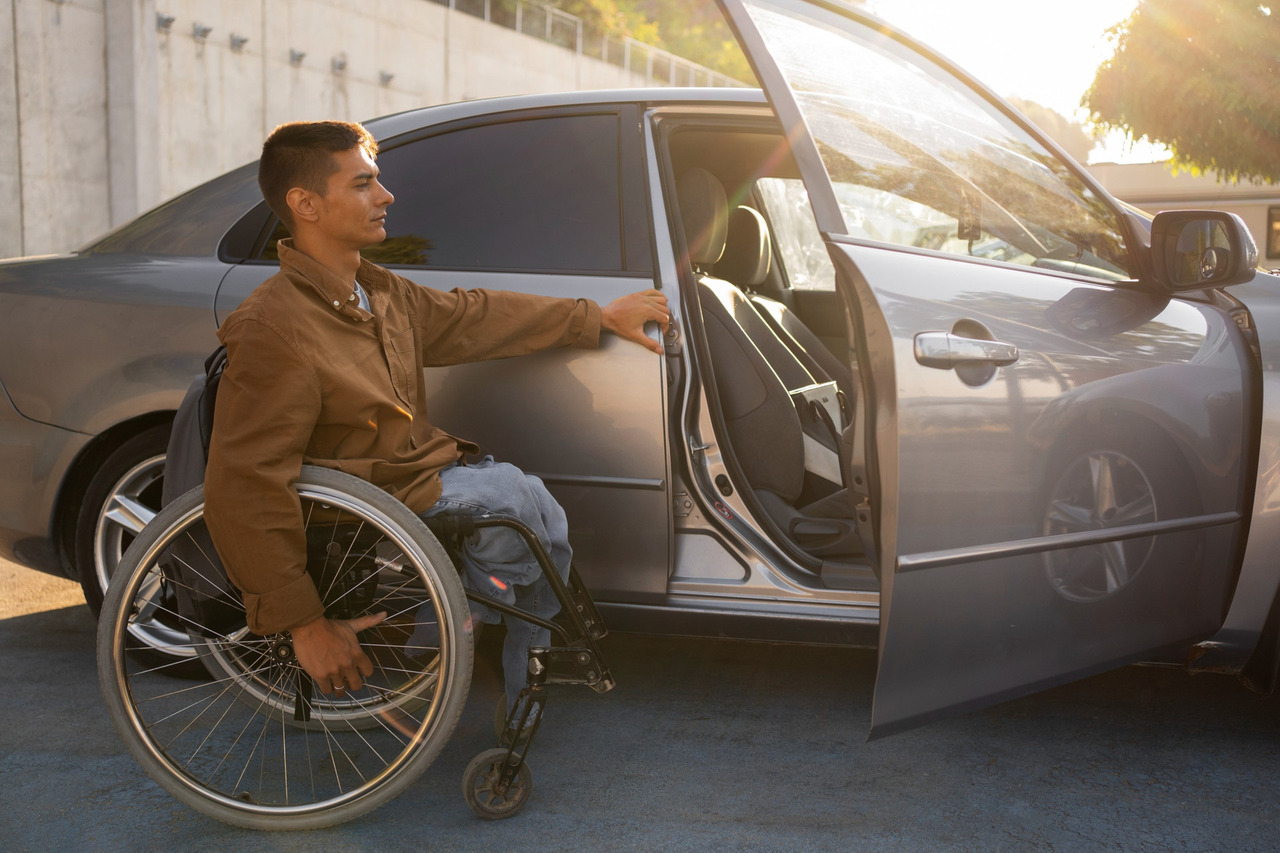
The Americans with Disabilities Act (ADA) states that companies cannot charge higher rates to disabled persons. But the fact is, due to certain additions, you may end up paying more for your car insurance. You will get the same insurance policy, but you may need to include certain add-ons to ensure comprehensive safety, which will increase the rates.
Let's find out what exactly car insurance for disabled persons and how you can get a lower rate.
Understanding Car Insurance for a Disabled Person
Being disabled does not automatically put you at a higher risk of accidents. But if your condition puts you at risk or you need vehicle enhancements to drive, the premium goes up accordingly.
Here are some disabilities that put you at a higher risk -
- Vision or hearing loss
- Use of Wheelchair
- Amputee or paraplegic
- Cerebral Palsy
- Mental health illness, epilepsy, or neurological conditions
- Stroke
If you have a serious disability, talk to your doctor first to assess how your disability impacts your ability to drive.
Plus, there are specific conditions when you need approval from your doctor to drive.
If your doctor considers you unfit to drive, they will ask the DMV or an appropriate state court to suspend your license.
In some cases, you will be allowed to drive with certain restrictions, such as if you have serious vision loss, you may not be allowed to drive at night.
If any medical approval is required, it will be reflected on your driver's license.
In such a case, insurance companies may charge more because you are at a higher safety risk.
How Does Auto Insurance for Disabled Drivers Differ?
If you are a disabled person, your coverage will only differ when -
- The cost to insure your medical condition that is a risk for driving is higher
- You have a custom vehicle with parts that are more expensive to replace
Here are some common modifications or disability-adapted equipment for disabled passengers and drivers -
- Automatic doors
- Amputee rings
- Keyless entry and ignition
- Power seats
- Hand controls
- Pedal and seat belt extensions
- Parking brakes
- Special mirrors
- Siren detectors
- Steering devices
- Adjustable seats, wheelchair ramps, and restraints
Be sure to disclose any add-ons or medical conditions to your insurer. If you don't, the insurer may deny the claim in case of an emergency, or you may be dropped from the policy.
How Much Coverage Do You Need?
The coverage depends most significantly on vehicle modifications, but other factors include -
- Driving record
- Where you live
- How often do you drive
- Age
Here's what a standard plan includes -
- Personal liability covers passengers or other drivers and their property
- Comprehensive and collision insurance to reimburse damage to vehicles
- Personal injury protection and medical injury protection for bodily injury to yourself or a passenger
- Uninsured coverage to cover injuries to yourself or damage to your vehicle if there is an accident with an underinsured or uninsured driver
Additional coverages that you may consider are -
- Roadside assistance coverage offers pickup, towing, or roadside assistance immediately after you meet with an accident
- Mobility car insurance coverage reimburses temporary transportation costs if your vehicle is under repair after an accident
- Adaption or special equipment coverage that covers damage to custom parts in your vehicle. Be sure to confirm that with your insurer, as they are not necessarily attached to your vehicle
How to Save Money on Car Insurance for Disabled Persons
Insurance rates vary among insurance companies based on how the insurer assesses your safety risk and coverage modifications.
Here are some ways you can save money when buying car insurance for disabled people -
- Look for discounts such as homeowner, loyalty, veteran, or senior discounts.
- Go for a usage-based or telematics policy. If you are a safe driver, the policy transmits your driving habits and mileage to the company via mobile app or device in your car.
- If you do not drive the vehicle, you don't need to be insured as a driver. Name another driver, and if that person does not need medical clearance, the rates will be lower.
- Get a quick car insurance quote from different insurance companies and compare these to find the best deal.
Get Yourself Insured With Car Insurance For Disabled People
Car insurance for a disabled person is not a different type of policy. A disability does not mean that insurers can charge higher rates, but it may differ based on your ability to drive safely and any vehicle modifications.
Disclose all the information to avoid claim rejections later on. To save money, compare quotes, look for discounts, and opt for a usage-based policy.
With the right approach, you can secure affordable and comprehensive protection.
